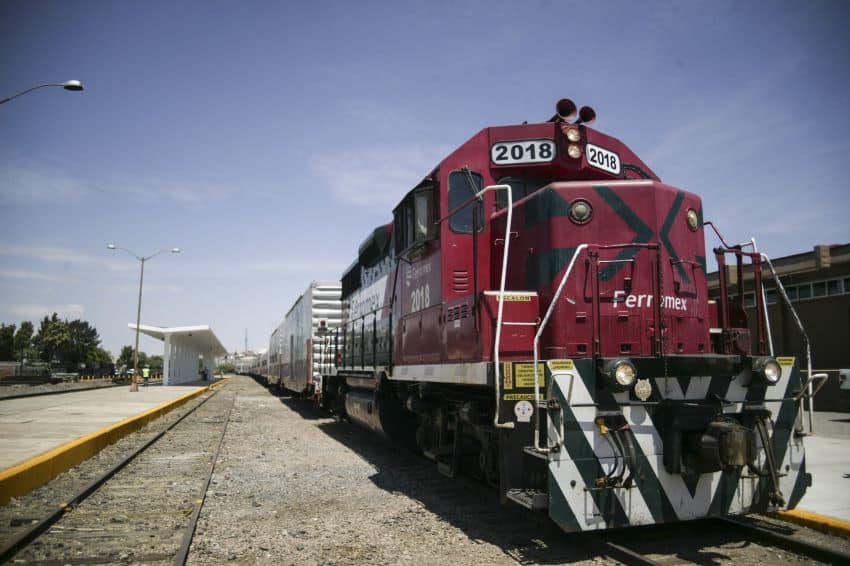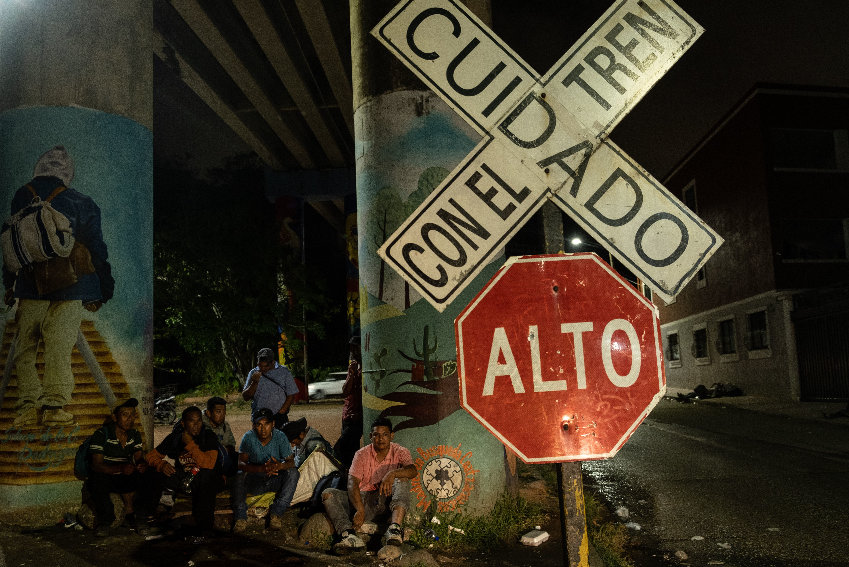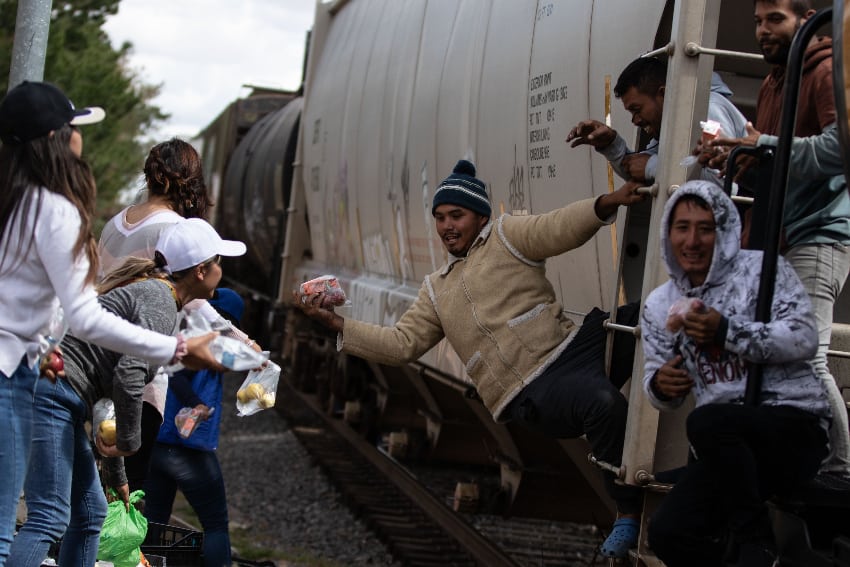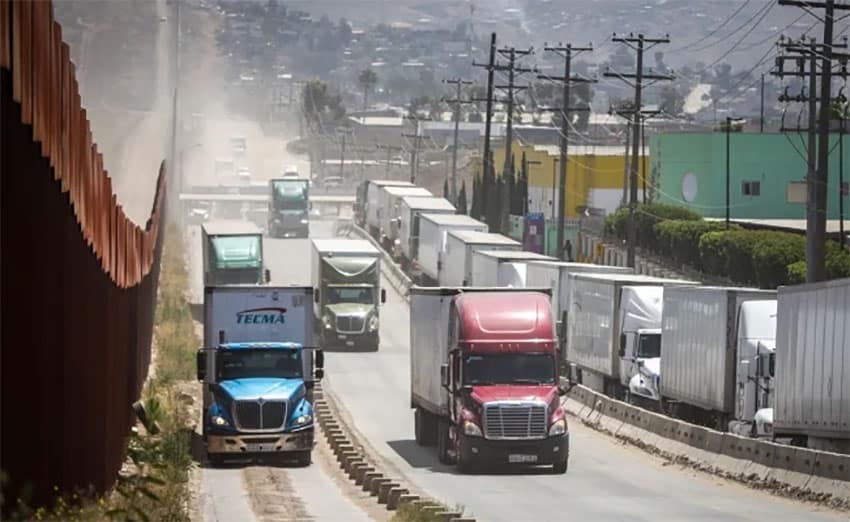Ferromex suspends operations of 60 freight trains in Mexico

Railroad operator Ferromex halted on Tuesday the operations of 60 freight trains that run on routes to northern Mexico after a string of accidents involving migrants riding the rails.
Grupo México Transportes, Ferromex’s parent company, said in a statement that Ferromex was “forced” to temporarily suspend the operation of freight trains “to protect the safety of migrants.”
“Due to the significant increase of migrants concentrated in several regions of the country and the serious risk … of using freight trains for transport, Ferromex has temporarily stopped … 60 trains … on routes toward the north of the country,” the statement said.
Grupo México said that the capacity of the 60 trains is equivalent to that of 1,800 trucks.
The company said there had been “close to half a dozen regrettable cases of injury and death” among migrants riding on freight trains in recent days. It noted that boys and girls are among the migrants that have climbed aboard trains.
Hundreds if not thousands of migrants have sustained serious injuries while riding freight trains in Mexico. Boarding northbound freight trains known collectively and colloquially as “La Bestia” (The Beast) is a common practice among migrants aiming to reach the United States.

Grupo México Transportes said that large groups of migrants had boarded freight trains and gathered in and around rail yards and tracks in different parts of the country including Torreón, Coahuila; Irapuato, Guanajuato; and San Francisco de los Romo, Aguascalientes.
It said on Tuesday that over 1,000 migrants were riding the rails between Chihuahua city and Ciudad Juárez, located opposite El Paso, Texas.
The Associated Press reported that hundreds of migrants were waiting to board trains at a rail yard in Huehuetoca, México state, on Tuesday.
“We haven’t heard any news [about the stoppage]. We are going to continue on our journey, and in fact we’re waiting for a train,” said Venezuelan migrant Pavel Aguilar Flores, who was hoping to get to Matamoros, Tamaulipas.

“I have heard there have been accidents, but not so many as people say. You have to be careful and get on the train when it’s stopped, not when it’s moving,” he told AP.
Migrants began climbing onto freight trains in large numbers about five days ago. A Ferromex source told the newspaper El País that never before had so many migrants attempted to board trains in such a short period of time.
Grupo México Transportes said it would be “attentive” to the measures authorities take to address the situation.
The company said it had informed its clients about “the temporary impact on freight rail service” due to the suspension of the operations of 60 trains. It acknowledged that the suspension would have some impact on supply chains and international trade, but didn’t cite any projected economic loss.
Lourdes Aranda, director of institutional relations and communication at Grupo México, told the news outlet Milenio that suspending train services was “a difficult decision to take.”
“We’ve already worked on this humanitarian issue with authorities for several years, but we’re overwhelmed [with migrants],” she said.
“In some cases the migrants manipulate the signaling system to divert a train and stop it,” Aranda added.
Ana Bertha Gutiérrez, international trade coordinator for the Mexican Institute for Competitiveness, a think tank, said that the impact of the train stoppage would be significant.
However, the president of the National Chamber of Trucking (Canacar), Miguel Ángel Martínez, told Milenio that Canacar members have the capacity to move freight that would normally go to the north of the country on freight trains.

Among the products that are routinely transported to northern Mexico on trains are foodstuffs, steel, electronics, clothes and vehicles. Some goods are then shipped on to the United States.
Private sector groups from Ciudad Juárez wrote to Interior Minister Luisa María Alcalde and Foreign Minister Alicia Bárcena to complain about the government’s failure to address the situation and demand action.
President López Obrador said Wednesday that the government is “constantly” working on “the migration issue.”
Speaking at his regular news conference, he said that “what matters to us aren’t the trains” but rather the migrants.
“In a strange, unusual way, the owners of the trains released a statement [saying] that they were going to stop the trains. They didn’t even do that when the teachers took over the tracks in Michoacán,” López Obrador said.
“… We have to protect migrants, but the statement of Mr. Germán Larrea really caught my attention,” he said, mentioning the billionaire president of Grupo México.
López Obrador said he had been informed that the trains began running again after the statement was released, although Ferromex hasn’t said that services to northern Mexico have resumed.

“That was the report they gave me in the morning,” he said.
The news agency Reuters reported that Ferromex’s suspension of 60 northbound freight services coincided with the arrival of large groups of migrants in northern border cities such as Ciudad Juárez, Piedras Negras and Tijuana.
A Venezuelan migrant who asked only to be identified as Heyder spoke to Reuters by telephone as he rode a train through Chihuahua on Tuesday. He said he decided to hop a freight train to Ciudad Juárez after waiting for more than three months in northern Mexico while he attempted to get an appointment with U.S. immigration authorities using an official (and apparently glitchy) mobile app called CBP One.
“We are risking everything aboard the train, our lives, everything, because in our countries there is no hope,” said the migrant, who told Reuters that he planned to cross illegally into the United States.
With reports from Milenio, El País, AP, Reuters and Reforma
Source: Mexico News Daily

